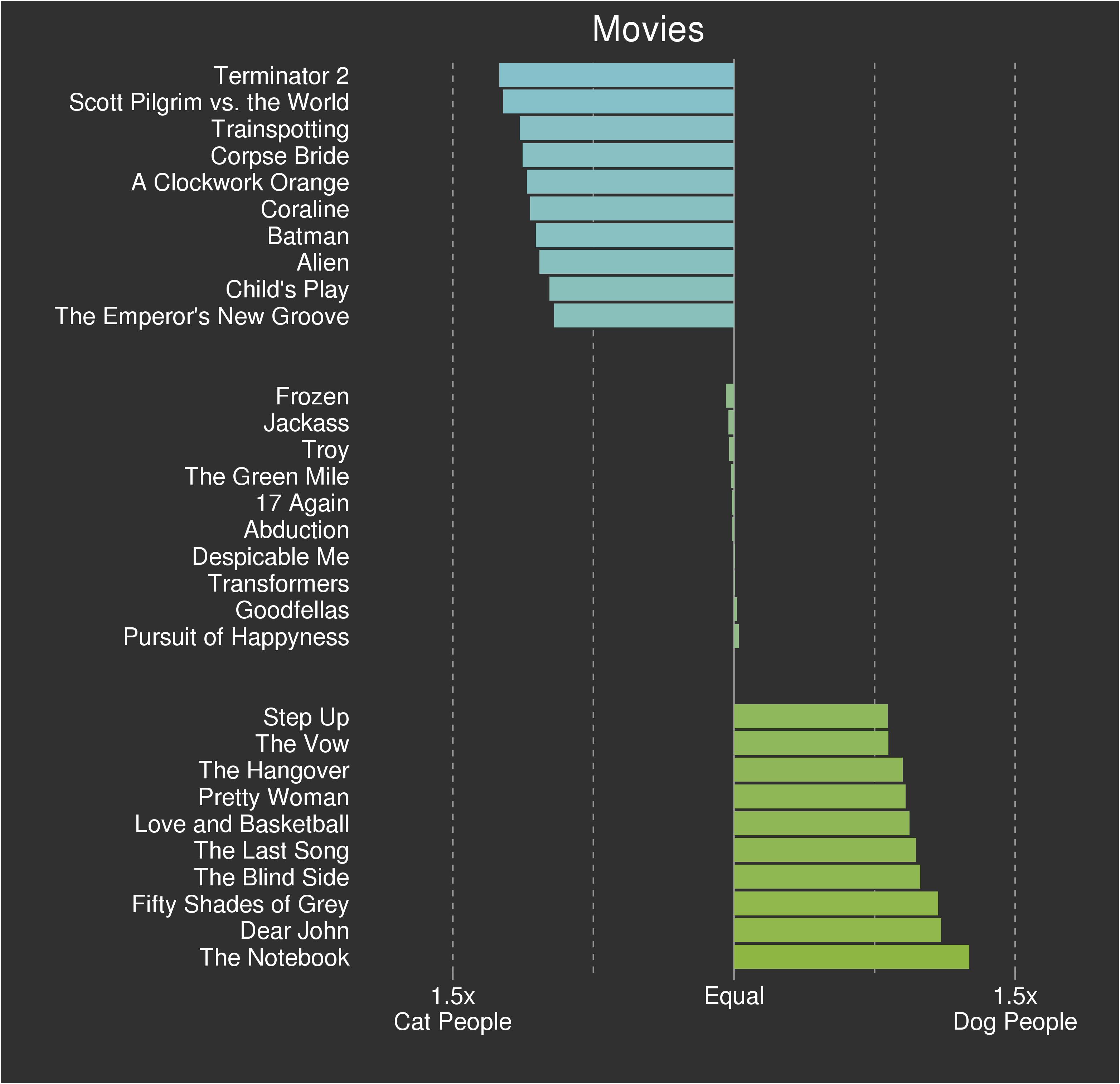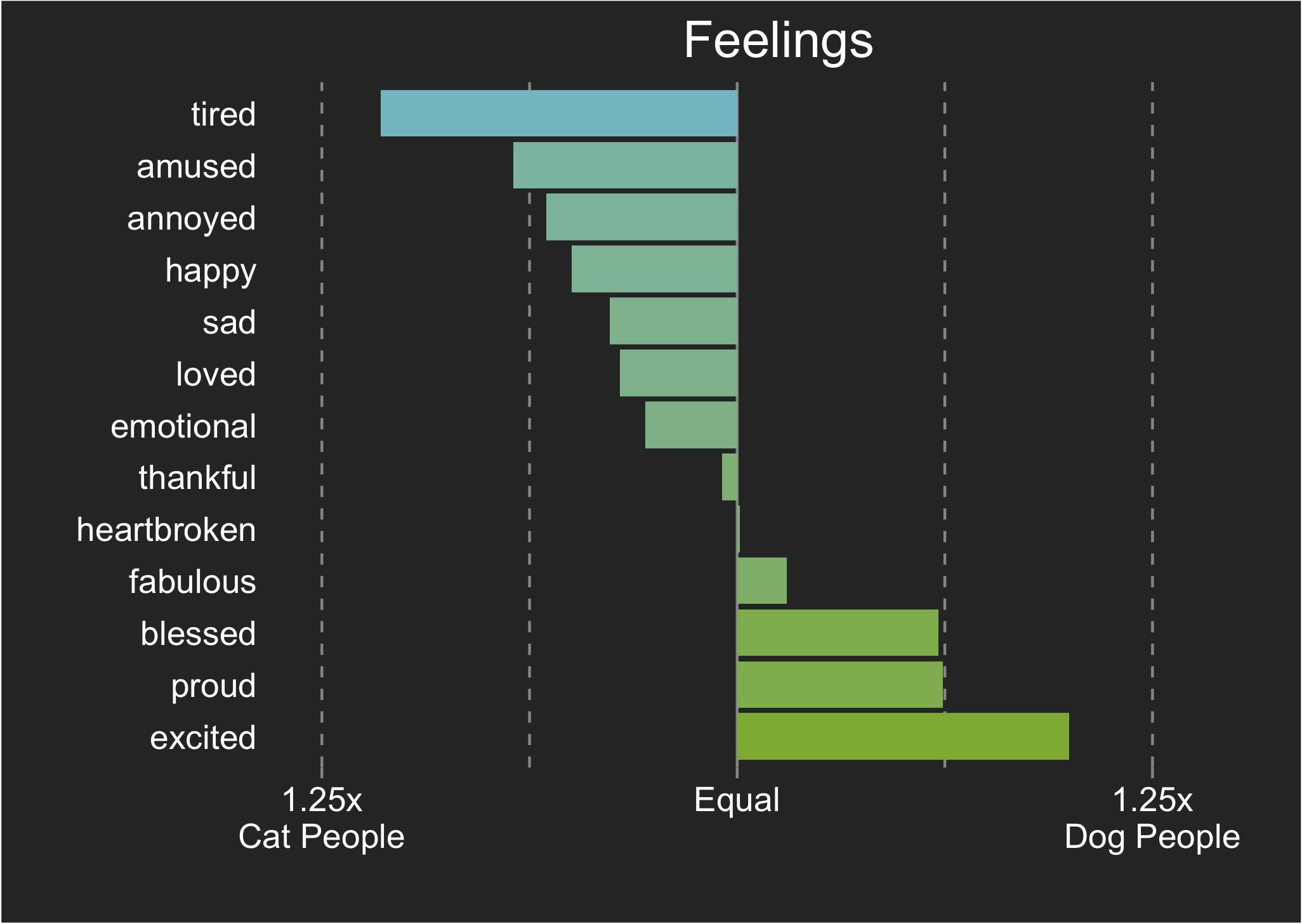You can tell a lot about someone based on their preference for dogs or cats, at least according to data from Facebook. The company took at look at its pet-loving users to find out the truth regarding stereotypes surrounding cat people and dog people.
The research is somewhat illuminating—turns out cat and dog people do have unique characteristics that differentiate them from one another, including what they like to read, their range of emotion, and where they live.
Facebook studied a pool of 160,000 users in the U.S. who shared photos of cats, dogs, or both to the social network. It used image recognition technology to determine the creatures in the photos, then grouped participants into “dog people” or “cat people.” The tech behind this animal association is the same thing Facebook uses for automated alt text, the photo recognition software that automatically identifies objects in photos and applies a text caption to help visually impaired users have a more inclusive Facebook experience.
After establishing creature criteria, Facebook took a look at other data decoupled from identities to determine trends in both groups. Because Facebook knows so much about us, from our relationship statuses to the places we go, it can pull information from its social graph and look for patterns in large pools of data.
Consider the stereotype that cat people are single old ladies: Facebook debunked it. Cat people are more likely than dog people to be single, but young and male cat-lovers are just as likely to be single. Though that could have something to do with the geographic differences between individuals and their pet pals—cat people tend to live in more urban areas with space (and landlords) more welcoming to animals that don’t require a ton of activity, whereas dog people are more concentrated in rural areas.
In terms of human relationships between the two groups, Facebook found dog people have an average of 26 more Facebook friends, but cat people get invited to more events.
Further, Facebook looked at entertainment preferences of dog and cat people and found cat people prefer more science fiction, fantasy, and horror, while dog people trend more towards romance, drama, and comedy.
When it comes to emotions, cat people apparently express themselves more. According to Facebook, which analyzed de-identified data from its feelings feature on status updates, “cat people are indeed disproportionately likely to say they’re feeling tired, but also happy and loved.” But don’t be down, dog people; Facebook says you’re more likely to be proud and excited.
The research presented earlier this week, accompanied by some adorable photos of Facebook furbabies, is a humanizing look at the technology that’s becoming embedded deeper into our lives and could potentially change the way Facebook makes money off its users. Consider a brand trying to target a specific group of people on Facebook—by using image recognition, Nike could advertise to sneakerheads who share pictures of kicks on the regular; Domino’s could serve up ads to pizza lovers; dog people could see ads for the next Eat, Pray, Love.
Facebook knows many intimate details, and while it’s a repository for our likes and feelings and friends, it’s also an endless stream of data that provides interesting insights into the social psyche. And while cat and dog people don’t always fit in these hard and fast rules, it might be fun to go through your friend list to see who among your pet-loving compatriots fits within these parameters.




